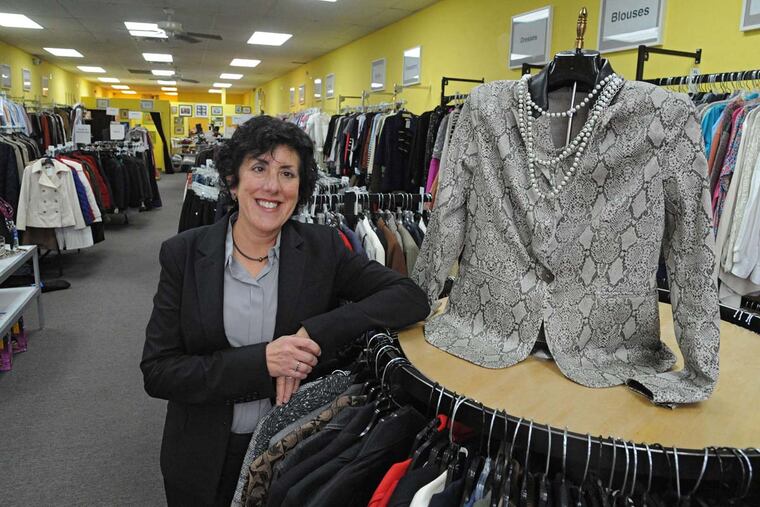Paula Goldstein, CEO of JFCS
Hanukkah begins at sunset Sunday, and there will be six menorahs to light at Paula Goldstein's house. "So we actually could set a nice little fire," said Goldstein, 58, president and chief executive of Jewish Family and Children's Service of Greater Philadelphia (JFCS), a $13 million organization celebrating its 160th anniversary this year.

Hanukkah begins at sunset Sunday, and there will be six menorahs to light at Paula Goldstein's house.
"So we actually could set a nice little fire," said Goldstein, 58, president and chief executive of Jewish Family and Children's Service of Greater Philadelphia (JFCS), a $13 million organization celebrating its 160th anniversary this year.
"One menorah somebody gave us, one we got when we were married, and then my children each have their own menorah, so we light them all," she said.
Jewish life is central to Goldstein, and in an unexpected way, her volunteer work helped her rise from social worker to chief executive.
While Goldstein was working in family education for JFCS, she volunteered to become the president of her synagogue, Temple Sinai, in Dresher. "I sort of got roped in," she said. "Nothing I'll ever do in my life will be as difficult as that job."
How so?
At the time I was president, there was an embezzlement by the executive director. The director went to prison. There was a court case. It was painful. There were a lot of things going on in the life of the synagogue that caused me to have to think strategically.
So how did this help your professional career?
Unbeknownst to me, the CEO at the time here, Jack Dembow, had been aware of what I was doing in the synagogue arena.
Did he go to Temple Sinai?
No. But he made it his business to know what people in the organization were doing in their volunteer life at the leadership level.
So what happened?
He wanted to change the culture of JFCS to be more business-oriented. So, he shows up at my door and says, "We have an opening for director of counseling and I think you might be good for it. I'm really talking to you because of your synagogue experience."
How did you respond?
I said, "Well, a lot of people had been in that job and had tried to make it whole and they were running huge deficits." I thought it was hard to manage. I was tired. I was at the end of my synagogue presidency. My mother had become extremely ill with lung cancer, and I was drained.
Even so, you took the job. And the $600,000 deficit?
It went. I closed offices. I had to lay off staff. We ended our Medicaid counseling contract because we were losing so much money.
But Medicaid serves the poor. Isn't that your mission?
We made a strategic decision that we would only offer counseling if we had grant funding that enabled us to have a sliding fee scale to subsidize it. The Medicaid reimbursement did not cover our costs.
Then you became chief operating officer and when Dembow retired, he backed you for CEO.
I knew for a lot of members of the board, it took some convincing.
Why?
Those who knew me from way back, they saw me as a social worker. They knew that I was very capable. But would I be able to transition into that leadership phase?
Is it different?
There's an executive presence a CEO has to have. Everything you do you have to do with the intent of leading, modeling, inspiring. When you are talking to people - internally and externally - you're carrying a message about what this organization is all about - all the time.
Any advice on how to acquire executive presence?
If you really want to rise, you have to present yourself as a leader. You have to be an interesting and innovative speaker. You have to be a good communicator. You have to be a team player. You have to know how to think strategically. What's good for the organization? What's good for the client?
How do you impart this?
We usually have eight to 10 students here every year from schools of social work. I tell them, "Fifty percent of what you learn here will be how to manage yourself in an organization. 'Can I be solution-focused?' " Because nobody wants somebody who just [complains]. They want to know, "What can we do to make it better?" These are all those ingredients that people latch on to and say, "Ah, that person really has it."
Interview questions and answers have been edited for space.
215-854-2769@JaneVonBergen